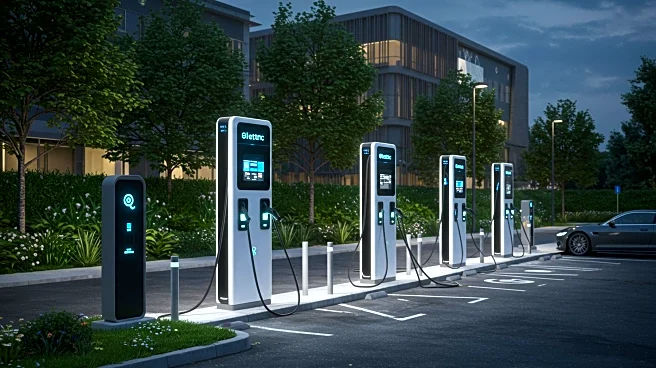What's Happening?
NWTN Inc., a global smart mobility and manufacturing platform, has entered into an Asset Contribution and Share Issuance Agreement with Pakistan's JW Corporation. This agreement grants NWTN exclusive usage rights to JW Corporation's complete knock-down automotive assembly facility in Lahore's China-Pakistan Special Economic Zone. The collaboration aims to introduce market-competitive multifunctional new energy commercial vehicles to the global market, leveraging JW Corporation's established distribution network. This partnership aligns with UAE's national vision and Dubai's economic agenda by exporting green transition technologies through EV production, establishing Pakistan as an export hub connecting South Asia, the Middle East, and Africa.
Why It's Important?
The partnership between NWTN and JW Corporation is significant as it enhances NWTN's global strategy by utilizing existing infrastructure for capital-efficient manufacturing. It accelerates NWTN's brand expansion and contributes to the UAE's sustainable manufacturing goals. The collaboration positions Pakistan as a key player in the EV market, potentially boosting its economy and technological capabilities. This move could influence the global EV industry by introducing competitive new energy vehicles, impacting market dynamics and consumer choices.
What's Next?
The partnership is expected to advance NWTN's evolution from a smart mobility brand to a global intelligent manufacturing platform. The focus will be on developing South Asia's premier new energy commercial vehicle export base. Stakeholders, including political leaders and businesses, may react to this development by exploring similar collaborations to enhance their market presence and technological advancements.
Beyond the Headlines
This collaboration may have deeper implications for the automotive industry, particularly in terms of ethical and environmental considerations. The focus on green transition technologies aligns with global efforts to reduce carbon emissions and promote sustainable practices. The partnership could also influence cultural perceptions of EVs in South Asia, encouraging wider adoption and acceptance.









